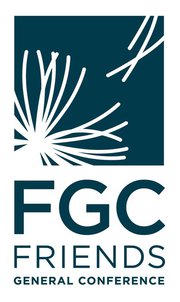
Friends General Conference (FGC) is an association of Quakers in the United States and Canada made up of 16 yearly meetings and 12 autonomous monthly meetings. "Monthly meetings" are what Quakers call congregations; "yearly meetings" are organizations of monthly meetings within a geographic region. FGC was founded in 1900.
The views of Quakers around the world towards homosexuality encompass a range from complete celebration and the practice of same-sex marriage, to the view that homosexuality is sinfully deviant and contrary to God's intentions for sexual expression. The Religious Society of Friends (Quakers) is a historically Christian religious movement founded in 17th-century England; it has around 350,000 members. In Britain, Canada, New Zealand and Australia, many Quakers are supportive of homosexual relationships, while views are divided among U.S. meetings. Many Conservative Friends and Holiness Friends, both of which have retained traditional Quaker practices such as plain dress, along with Evangelical Friends, view homosexual acts as sinful. 49% of Quakers live in Africa, and though views may differ, the Kenyan Church of Friends does not support homosexual relationships.
The Philadelphia Yearly Meeting of the Religious Society of Friends, or simply the Philadelphia Yearly Meeting, or PYM, is the central organizing body for Quaker meetings in the Philadelphia, Pennsylvania, United States area, including parts of Pennsylvania, Maryland, Delaware and New Jersey. The PYM is primarily affiliated with the Friends General Conference and is a member of the National Council of Churches.

Yearly Meeting is an organization composed of constituent meetings or churches of the Religious Society of Friends, or Quakers, within a geographical area. The constituent meetings are called Monthly Meetings in most of the world; in England, local congregations are now called Area Meetings, in Australia Monthly Meetings are called Regional Meetings. "Monthly" and "Yearly" refer to how often the body meets to make decisions. Monthly Meetings may be local congregations that hold regular Meetings for Worship, or may comprise a number of Worship Groups. Depending on the Yearly Meeting organization, there may also be Quarterly Meetings, Half-Yearly Meetings, or Regional Meetings, where a number of local Monthly Meetings come together within a Yearly Meeting.
The Friends World Committee for Consultation (FWCC) is a Quaker organisation that works to communicate between all parts of Quakerism. FWCC's world headquarters is in London. It has General Consultative NGO status with the Economic and Social Council of the United Nations since 2002. FWCC shares responsibility for the Quaker UN Office in Geneva and New York City with the American Friends Service Committee and Britain Yearly Meeting.
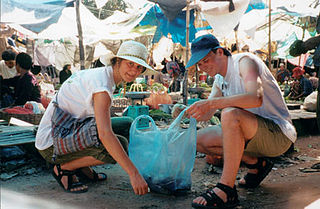
Service Civil International (SCI) is an international peace organisation, founded by Swiss pacifist Pierre Cérésole in the aftermath of World War I to foster understanding and a culture of peace between people from different countries. Since 1920 SCI has organised international volunteering projects in the form of workcamps and has expanded to have branches in 40 countries, as well as partner organisations who help run the projects.
Quaker Peace & Social Witness (QPSW), previously known as the Friends Service Council, and then as Quaker Peace and Service, is one of the central committees of Britain Yearly Meeting of the Religious Society of Friends – the national organisation of Quakers in Britain. It works to promote British Quakers' testimonies of equality, justice, peace, simplicity and truth. It works alongside both small local and large international pressure groups.

Iwao Frederick Ayusawa was a diplomat and international authority on social and labor issues.

Quakers are people who belong to the Religious Society of Friends, a historically Protestant Christian set of denominations. Members refer to each other as Friends after John 15:14 in the Bible, and originally, others referred to them as Quakers because the founder of the movement, George Fox, told a judge to quake "before the authority of God". The Friends are generally united by a belief in each human's ability to be guided by the inward light to "make the witness of God" known to everyone. Quakers have traditionally professed a priesthood of all believers inspired by the First Epistle of Peter. They include those with evangelical, holiness, liberal, and traditional Quaker understandings of Christianity, as well as Nontheist Quakers. To differing extents, the Friends avoid creeds and hierarchical structures. In 2017, there were an estimated 377,557 adult Quakers, 49% of them in Africa followed by 22% in North America.

The Quaker movement began in England in the 17th Century. Small Quaker groups were planted in various places across Europe during this early period. Quakers in Europe outside Britain and Ireland are not very numerous (2023) although new groups have started in the former Soviet Union and successor countries. By far the largest national grouping of Quakers in Europe is in Britain. As of 2017, there were around 32,100 Quakers (Friends) in Europe.
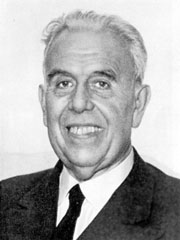
Edmond Privat was a Francophone Swiss Esperantist. A historian, university professor, author, journalist and peace activist, he was a graduate of the University of Geneva and a lecturer for the World Peace Foundation. His collective works consist of original dramas, poems, stories, textbooks and books about the Esperanto movement.
The Quaker United Nations Office (QUNO) is a non-governmental organisation representing the Religious Society of Friends (Quakers) at the United Nations in Geneva and New York City. Parent bodies of QUNO are the Friends World Committee for Consultation (FWCC), American Friends Service Committee and Quaker Peace and Social Witness. FWCC holds consultative status with the United Nations Economic and Social Council, and the Quaker UN Offices in New York and Geneva operate on behalf of Friends worldwide through this status. The offices work closely on issues of Human Rights and refugees, peace and disarmament, human impacts of climate change, as well as peacebuilding and the prevention of violent conflict.

Brummana High School is a private school in Lebanon. It is located in the village of Brummana, situated in Metn, Mount Lebanon, 10 kilometres (6.2 mi) east of the capital city Beirut.
New York Yearly Meeting of the Religious Society of Friends, or simply New York Yearly Meeting or NYYM, is the central organizing body for Quaker meetings and worship groups in New York State, northern and central New Jersey, and southwestern Connecticut.
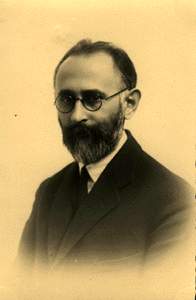
Adolphe Ferrière was one of the founders of the progressive education movement.
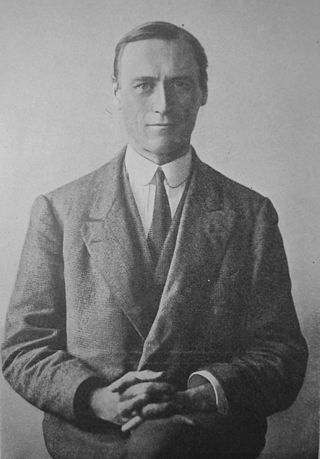
Pierre Cérésole or Ceresole was a Swiss pacifist, remembered for founding the peace organisation Service Civil International (SCI) and the international workcamp movement.
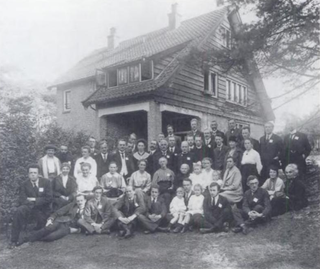
The Bilthoven Meetings were a series of networking and capacity building meetings of pacifist activists after World War I in the town of Bilthoven in the Netherlands. The activists gathered under the name of Movement Towards a Christian International, which was later renamed to International Fellowship of Reconciliation. The meetings took place at the house of Kees Boeke, a Quaker missionary and pacifist.

Hélène Monastier was a Swiss peace activist and teacher in Lausanne.
Emma Thomas (1872–1960) was an English schoolteacher and member of the Society of Friends. She taught in London County Council schools. She is best known for her later role in founding the International Fellowship School in Switzerland (1923–1936) for the Fellowship of Reconciliation, and her work in Perugia from the 1940s with Aldo Capitini.















